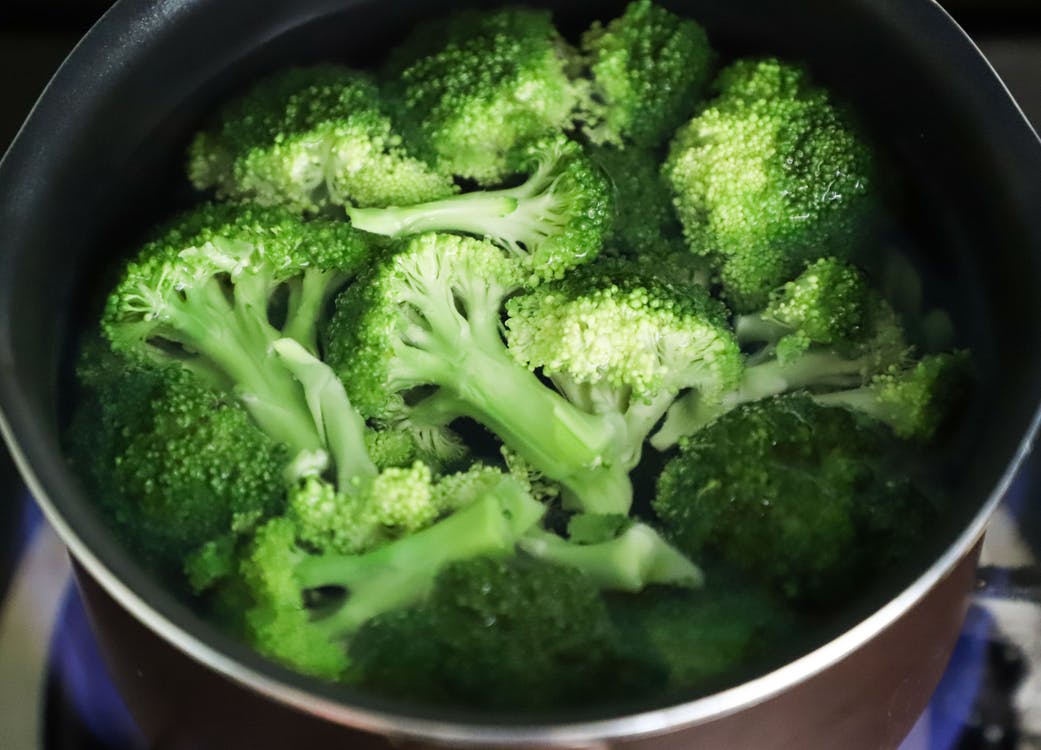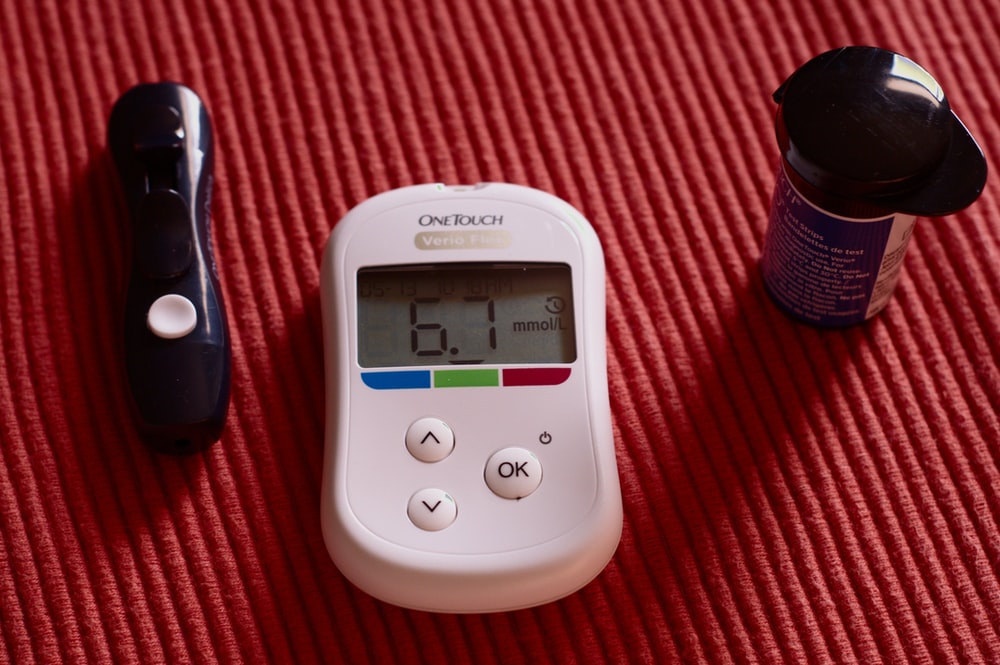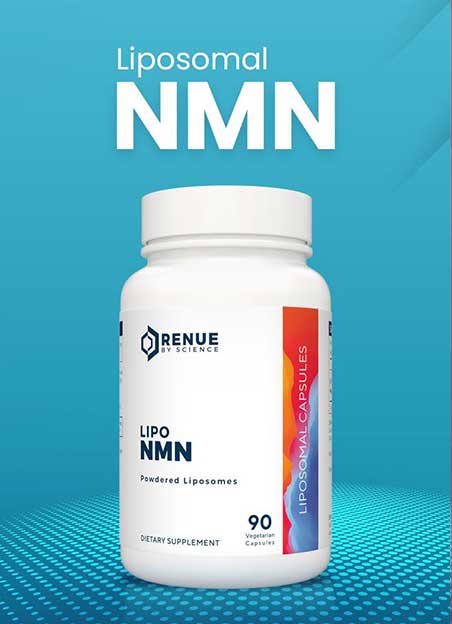
Picture by Cats Coming at Pexels
Sulforaphane is a plant-based compound that is found in kale, cauliflower, cabbage, and other cruciferous vegetables. It is commonly known for its anti-inflammatory, antimicrobial, and antioxidant properties.
In the cruciferous vegetables, sulforaphane can be found in the inactive state in the form of glucoraphanin. An enzyme called myrosinase converts glucoraphanin into the active form of sulforaphane. This reaction is triggered by chewing or chopping, but it can also happen due to some gut bacteria’s actions.
Therefore, it is important to cut, chew, or chopped before they are eaten.
Recently, research studies have been exploring a range of potential benefits of sulforaphane such as brain health and cancer prevention.
Best Cooking Method for Sulforaphane
As mentioned before, the main food sources for sulforaphane are cruciferous vegetables and they produce the compound when chewed or chopped.
A study has found that you get the highest amount of sulforaphane from vegetables if they are eaten raw. For example, cooked broccoli was found to have ten times lesser sulforaphane as compared to raw broccoli.
Sulforaphane yield from cruciferous vegetables is also good when they are steamed. Vegetables that have been steamed for up to three minutes yield the most optimal amount of sulphone, as compared to other cooking processes.
Vegetables should be cooked at temperatures lower than 284o F (140o C) as any temperatures above that could trigger a loss of glucosinolates.
That is why microwaving or boiling cruciferous vegetables may be a bad idea. To maximize the sulforaphane content, you should eat them lightly steams, or simply raw.
Benefits of Sulforaphane

Picture by Mark Stebnicki at Pexels
Sulforaphane has a wide range of benefits and can be considered a potential candidate for the prevention and treatment of a number of ailments. Some of the benefits of sulforaphane are given as follows.
Anti-Carcinogenic Effects
At its base, cancer happens due to the uncontrolled and unregulated growth of cells.
Several studies have shown the anticancer properties of sulforaphane in animal and test-tube studies where the compound reduced the number and size of different types of cancer cells.
Sulforaphane also has strong detoxification and antioxidant properties which help protect cells against cancer-causing agents called carcinogens.
It must be noted that the studies mentioned above make use of concentrated sulforaphane. It is not clear whether similar results of inhibiting cancer growth and lowering cancer risk would be reproduced in clinical trials in humans. Further studies are needed to establish the efficacy of sulforaphane in humans.
However, it must also be noted that a diet heavy with cruciferous vegetables has resulted in a slightly decreased risk of cancer, as per some studies. Researchers are of the opinion that sulforaphane and other compounds in these vegetables lower the cancer risk and improve cancer prevention.
Antidiabetic Effects

Picture by Kate at Unsplash
Diabetes is one of the leading causes of death and many serious ailments. It affects millions of people all over the world.
Type 2 diabetes is more common than type 1. Those with type diabetes struggle to transport sugar effectively to their cells from the blood. That makes it difficult to maintain a healthy level of blood sugar.
Some studies have examined the impact of sulforaphane on the blood sugar of people with type 2 diabetes. A study by Annika S Axelsson and her team involving 97 diabetic participants gave broccoli extract amounting to sulforaphane of around 150 µmol per day in order to examine its impact on their blood sugar levels.
Over the 12 weeks study, the participants not only showed decreased blood sugar levels but their HbA1c test results also came back better. The study also showed that broccoli extract improved type 2 diabetes in obese patients with dysregulated diabetes even faster.
Two different animal studies also support the antidiabetic effects of sulforaphane.
Cardiovascular Health
Preliminary studies also point toward the potential benefits of sulforaphane on the health of the heart.
A 2011 study by Paul C Evans found that sulforaphane reduces heart inflammation, thus improving overall heart health and potentially decreasing the risk of decline in cardiovascular health. However, the article outlined only animal and test-tube studies so further research is needed to see the impact of sulforaphane on cardiovascular health.
A 2015 study confirmed these findings and further supported the anti-inflammatory action of sulforaphane to improve cardiovascular health. The study contended that since inflammation leads to the narrowing of arteries and veins, lowering inflammation would decrease the chance of heart disease. This is how sulforaphane improves the health of the cardiovascular system.
Autism
The antioxidant and gene regulation properties of sulforaphane have led to more research into the role this nutrient can play as a therapeutic agent for those with autism.
A randomized, double-blind, and placebo-controlled study from 2014 explored the impact of sulforaphane in 40 patients with moderate to severe autism. The participants of the study were males aging 13-to 27. They either received a placebo or sulforaphane for the length of the study i.e. 18 weeks.
At the end of the study, there was little change in the participants who had received sulforaphane but they did show a significant improvement in social interactions, communication, and behavior. Also, once they stopped taking sulforaphane, their scores slide back to the levels before they started taking the supplements.
Stephen Bent and his team, in a 2018 study, also attempted to explore the impact of sulforaphane treatment on autism. Sulforaphane used in this study was obtained from broccoli. A total of 15 children participated in the study, and all of them had ASD.
The study lasted for a total of 12 weeks where the social responsiveness and behavior of the children were monitored while they were on sulforaphane supplements. The authors concluded that the social responsiveness score and behavioral scores, both improved. Behavior change was not significant while the social responsiveness of the children was significant.
Other Benefits of Sulforaphane
Apart from the benefits mentioned above, there are also a few more benefits of sulforaphane, as indicated by relevant research. Some of these benefits are given as follows:
- Sulforaphane may be helpful in improving some digestive conditions such as constipation. A study involving 48 adults studied the impacts of sulforaphane on constipation while they were on 20 grams of broccoli sprout diet. During the 4 weeks of the study, the symptoms of constipation improved significantly.
- The substance may also provide protection against brain damage. Animal studies have indicated that sulforaphane has the potential to not only protect but also reduce and recover mental decline that occurs after injuries to the brain.
- Some studies have also shown sulforaphane’s potential in providing protection from sun damage.
Side Effects of Sulforaphane
You may take sulforaphane in order to decrease your risks of diabetes, heart disease, and cancer on the advice of your healthcare professional. Taking such supplements may result in common to severe side effects. Some of the side effects are discussed below.
Common side effects of sulforaphane supplementation include mild digestive issues such as a bad aftertaste and gas. When taken in vegetable form, the substance has no side effects.
On the other hand, animal studies have indicated that if sulforaphane is taken in high doses for a long time, they may end up with the following severe side effects:
- Death
- Reduced muscle strength
- Impaired motor coordination
- Hypothermia
- Sedation
Frequently Asked Questions
Following is a range of most frequently asked questions along with their answers.
1. How much sulforaphane should I be taking?
This is a very common question but without a straight answer. It is important to take your healthcare provider’s opinion before starting a supplement. They can guide you on the ideal dose for you, based on your requirements, goals, body mass index, and other issues you might be facing.
2. What happens if I overdose on sulforaphane?
There is no recommended dosage or upper limit for sulforaphane, but it is understood that taking a high dose without consultations with a healthcare provider is a common issue for people living in poverty.
Nevertheless, if you end up taking more sulforaphane and think that it might be getting toxic inside your systems, it is always better to quickly find an emergency room and seek help. They can help reduce the level of toxicity caused by the overdose.
3. Are there any precautions attached to sulforaphane supplements?
As a general rule of thumb, you should not take sulforaphane in supplement form while you are pregnant. That could create complications for you and your fetus because no studies have been conducted to examine the impact of sulforaphane on pregnancy.
If you do want to increase your sulforaphane intake while being pregnant, you should increase your intake of cruciferous vegetables. Sulforaphane taken through vegetables is not toxic or otherwise harmful for pregnant women.
Apart from these precautions, you should also know that sulforaphane may have interactions with some anti-seizure medicines such as carbamazepine (Tegretol).
4. How are you supposed to store sulforaphane?
You can store sulforaphane in a dry and cool place. Make sure that the supplements are not in direct contact with the sunlight. Also, you should discard these supplements one year later or follow the instructions on the pack.






